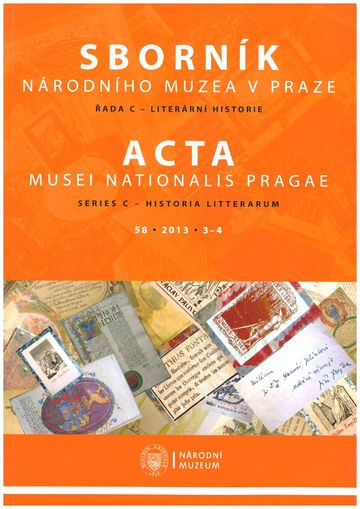Projekt PROVENIO, databáze PROVENIO a zpracování proveniencí v Knihovně Národního muzea
Jaroslava Kašparová, Richard Šípek
The aim of the PROVENIO Project: The Method of Book Provenance Research, which was initiated by the National Museum Library in 2012, is to create the methodology for the cataloguing of provenance notes and marks in books in the MARC 21 cataloguing format. The article briefly summarises the existing…

